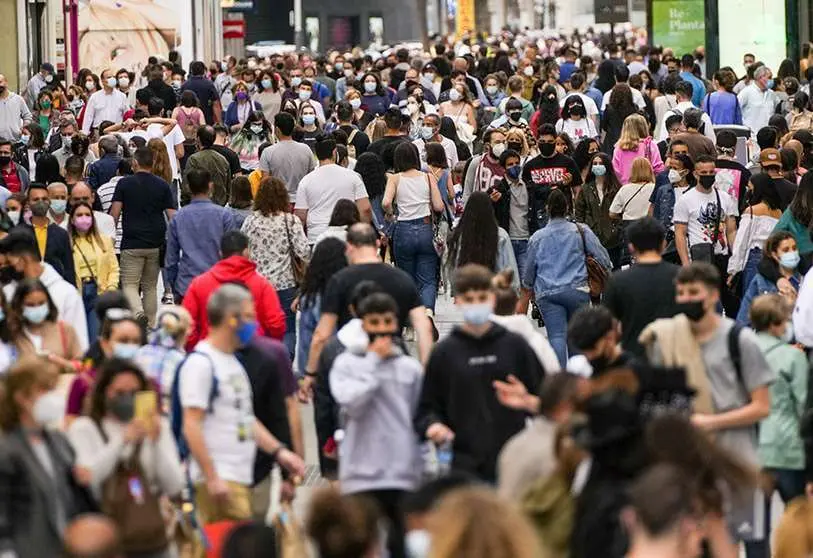The damned virus

The month of August is passing with its heat after a very hard year in which many people have died, many have been in the ICU, we have lost loved ones or we have not seen them for a year, businesses that provided us with food have closed, or we have lost our jobs. Despite appearances and the anaesthesia of summer, the virus leaves a trail of destruction and pain and we are unable to leave it behind. Bill Bryson has said that "a virus is bad news wrapped in a protein" and Covid-19 has been lousy news. There have been many deadly epidemics throughout history but this one is different because for the first time it has quarantined all of humanity and because for the first time all of humanity has come out to fight it "as one man", if you feminists will pardon the expression. All together with a lot of money and the use of social networks for research on a much larger scale than was deployed against AIDS. This explains why several vaccines have been developed in a single year, when the first malaria vaccine was tested in 1981, and we are still there. But malaria is a disease of the poor.
The current virus affects everyone equally without distinguishing between blacks and whites, rich and poor, heterosexuals and gays. It does not even distinguish between pro- and anti-independence Catalans as some might wish. We are all in the same boat and we all die even if the poor die more, as is always the case. With the delta variant, infections are increasing by 10% every week and that is why the Japanese (with less than 20% of their population vaccinated) have had a lacklustre and sad Olympic Games, with no spectators in the stands and heavy economic and image losses. Despite all the measures taken, infections have multiplied in Japan after the return of the athletes. In Spain, the virus is not allowing the end of the tourist season, on which so many businesses and jobs depend, to clear, a situation to which the excessive optimism of a government that has spent months creating an atmosphere of false security by claiming that we have beaten it (? ); contradictory health guidelines that confuse the public, as well as different judicial assessments of the same facts; insufficient testing and monitoring; lax control of travellers; lack of education of young people who believe they are eternal, with rights and not obligations; and pressure from powerful sectors that see their interests at risk and prioritise business over lives, as harsh as this may sound. Against this backdrop comes the debate on the compulsory health pass for access to closed premises, which has already been imposed in several countries, and in which the right of some not to be vaccinated and the right of others not to be infected are at loggerheads. I confess that I am in favour: if someone does not want to be vaccinated, let them not be vaccinated, but please do not sit next to me in the cinema.
Today approximately 70% of North Americans and Europeans are vaccinated, but only 1% of the 1.3 billion Africans... and still nobody in Haiti. And as long as we are not all vaccinated, mutations of the virus will continue to emerge, eventually resistant to vaccines. It is a matter of time. We are in a race against the clock. That is why the WHO is asking the rich to stop stockpiling doses and allow at least 10% of the poor to be vaccinated before we give ourselves extra shots, and estimates that to vaccinate 70% of humanity, 11 billion doses are needed, which at a unit price of 5 to 7 dollars would cost around 80 billion, or less than 1% of the world's GDP (80 billion). It does not seem a bad deal if we consider that the pandemic contracted the world economy by 3.6% in 2020 and that in Spain the fall exceeded 10 points of GDP.
But I fear that the prospects are not good. It is one thing to talk about solidarity and another to be willing to cede vaccines to other countries. This virus is here to stay like the flu, it will require annual jabs and we will be lucky if, until we all - and I mean all - get vaccinated, some vaccine-resistant mutation does not emerge and fill the hospitals again. I assure you that I would prefer to be wrong.
Jorge Dezcallar/ Spanish Ambassador.

